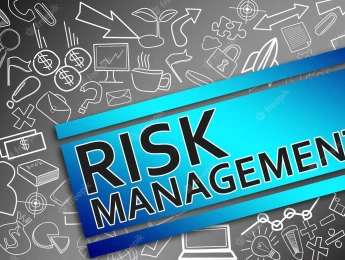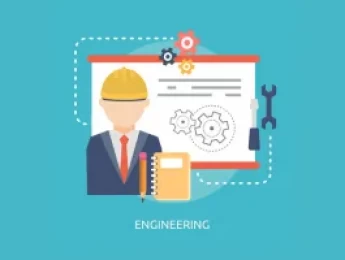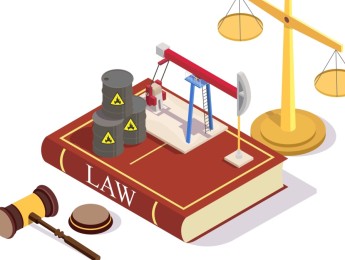Regardless of industry, any organisation will require efficient document storage and management to function at its peak capacity. This is especially true within the engineering industry, where there are a plethora of important and confidential documents that need to be stored securely.
Electronic document storage and management are crucial to an organisation's functionality. Accurate document classification and storage will allow the necessary personnel to view and access the exact information they require in a timely manner, so employees can continue their tasks with little disruption. An outdated or complicated storage system can severely impact someone’s productivity, as they can spend their valuable time searching for required documents instead of focusing their attention elsewhere.
Document management involves the efficiency of the system and strongly focuses on its security. An organisation is guaranteed to have confidential files that only a select few should be able to access. An ideal system should have strict security measures and approval processes in place to ensure no unwanted person is able to access and potentially tamper with them.
Upon completion of this course, participants will be able to:
- Understand the vitality of an organisation's document control, auditing, and storage.
- Review the security requirements when managing confidential documents.
- Explain how effective filling systems are developed.
- Consider who needs to be involved when creating filling systems.
- Evaluate the consequences of poor documentation storage on business productivity.
- Utilise innovative methods and techniques to create improved filling systems.
- Improve filling and documentation standards.
- Thoroughly understand organisation policies and procedures for document management.
- Introduce documentation management practices and standards.
- Identify ISO standards for documentation standards.
This course is designed for anyone within an engineering organisation responsible for document management. It would be most beneficial for:
- Operation Managers
- Engineering Project Managers
- POM Personnel
- Finance Managers
- IT Managers
- Senior Executives
- Engineering Directors
- Chief Information Officers (CIOs)
This course uses a variety of adult learning styles to aid full understanding and comprehension. Participants will review genuine examples of EDMS systems in established organisations to highlight areas of importance and security measures in place.
They will be provided with the ideal tools and equipment to carry out the learning exercises. Combined with presentations, discussions, and group activities, participants can develop a thorough understanding of the taught content. Furthermore, they will be allowed to develop their own EDMS systems in relation to their respective roles and demonstrate them to one another. This will allow them to see how accessible their systems are and what improvements could be made.
Day 5 of each course is reserved for a Q&A session, which may occur off-site. For 10-day courses, this also applies to day 10
Section 1: Introduction to Engineering EDMS
- Defining Electronic Documentation Management Systems (EDMS)
- Documentation management policies and procedures.
- Indexing, taxonomy, and classification.
- The importance of document management procedures within an organisation.
- Version control, audit, and managing Metadata.
- ISO standards, regulations, and solutions for compliance.
Section 2: Roles & Responsibilities
- Developing key responsibilities for managing EDMS.
- Improving business process re-engineering and business processes.
- Important information to include and workflow potential.
- Evaluating who needs to be involved and approval processes.
- Management support, reviews, and security approvals.
Section 3: Designing EDMS
- Understanding the role innovation plays in designing EDMS.
- Methods and techniques to invoke innovation.
- Creating a design overview detailing goals and objectives.
- Establishing documentation control procedures aligned with ISO standards.
- Creating classifications, taxonomies, retention requirements, and filing systems.
- Constructing security controls and reviewing information security ISO 27001.
- Gaining approval for necessary personnel.
Section 4: IT Standards and Implementation
- Reviewing the newly created EDMS.
- Communicating effectively with colleagues, employees, and superiors the benefits of the new systems.
- How to handle change resistance.
- Procuring an EDMS.
- Implementation of the best practices.
- Assessing the latest technologies and their potential benefits – Cloud Computing and Software as a Service (SaaS).
Section 5: Reviewing Post-Implementation
- Analysing increases in productivity and functions.
- Identifying mistakes and rectifying them before they impact efficiency.
- Review security measures to ensure there have been no breaches.
- Document success and look for inspiration for future improvements.
Upon successful completion of this training course, delegates will be awarded a Holistique Training Certificate of Completion. For those who attend and complete the online training course, a Holistique Training e-Certificate will be provided.
Holistique Training Certificates are accredited by the British Assessment Council (BAC) and The CPD Certification Service (CPD), and are certified under ISO 9001, ISO 21001, and ISO 29993 standards.
CPD credits for this course are granted by our Certificates and will be reflected on the Holistique Training Certificate of Completion. In accordance with the standards of The CPD Certification Service, one CPD credit is awarded per hour of course attendance. A maximum of 50 CPD credits can be claimed for any single course we currently offer.
- Course Code IND04-118
- Course Format Classroom, Online,
- Duration 5 days














